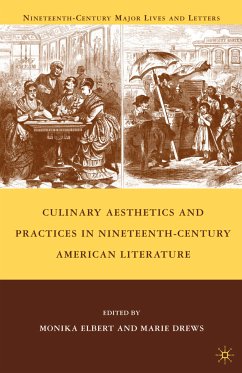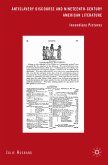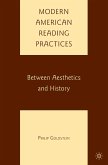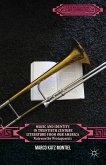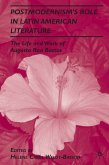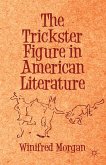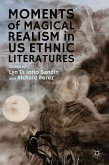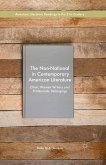Dieser Download kann aus rechtlichen Gründen nur mit Rechnungsadresse in A, B, BG, CY, CZ, D, DK, EW, E, FIN, F, GR, HR, H, IRL, I, LT, L, LR, M, NL, PL, P, R, S, SLO, SK ausgeliefert werden.
Hinweis: Dieser Artikel kann nur an eine deutsche Lieferadresse ausgeliefert werden.
"This cross-disciplinary collection investigates the complexities of making uniquely American food scenes out of continued exchanges transporting not merely food, but also its metaphors in a two-way flow of transatlantic responses. Elbert and Drews speak of a culinary declaration of independence as writers of popular fiction as well as of cookbooks and travel accounts shuttled between evocations of abundance and excess, scarcity and frugality to create intriguing culinary metaphors, compelling us to gloss anew changing ways ofpresenting food in writing." - Tamara S. Wagner, author of Longing: Narratives of Nostalgia in the British Novel, 1740-1890 and co-editor of Consuming Culture in the Long Nineteenth Century: Narratives of Consumption, 1700-1900

